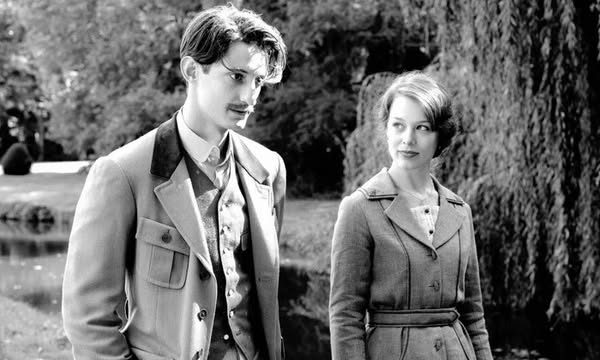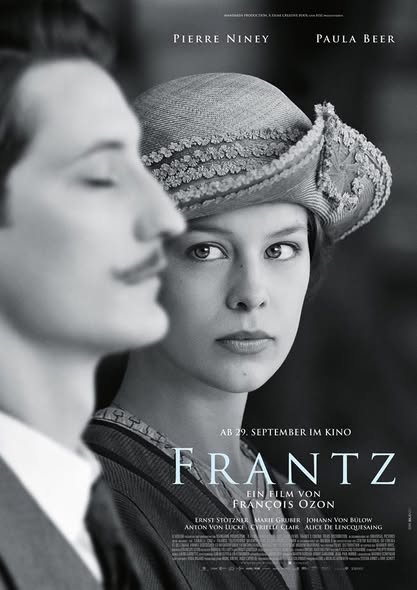Frantz (2016)

Frantz (2016) is a poignant and visually stunning film that weaves together themes of grief, love, and the lingering scars of war. Directed by François Ozon, this richly layered drama explores the complexities of human emotions in the aftermath of World War I. With its striking cinematography and meticulously crafted narrative, Frantz invites viewers to reflect on the nature of memory and the impact of loss on personal relationships.
Set in Germany in 1919, the film follows Anna (Paula Beer), a young woman mourning the death of her fiancé, Frantz, who was killed in the war. Struggling to cope with her grief, Anna visits Frantz’s grave regularly, where she encounters a mysterious Frenchman named Adrien (Pierre Niney). Adrien reveals that he knew Frantz in France, and as the two form an unexpected bond, the film delves into the depths of their shared sorrow and the secrets that connect them.

The narrative unfolds with a delicate balance of melancholy and hope, as Anna and Adrien navigate their painful memories while trying to forge a new connection. Their relationship is marked by a blend of tenderness and tension, as they grapple with their respective losses and the realities of a post-war world filled with uncertainty. The film’s slow pacing allows for a contemplative exploration of their emotional journeys, drawing viewers into their intimate struggles.
Frantz is primarily categorized as a romantic drama, yet it transcends traditional genre boundaries by incorporating elements of mystery and historical reflection. Ozon’s direction is both sensitive and evocative, utilizing black-and-white cinematography interspersed with bursts of color to enhance the emotional impact of key moments. This stylistic choice not only emphasizes the contrast between the past and present but also underscores the characters’ internal conflicts.

The performances in the film are exceptional, with Paula Beer delivering a haunting portrayal of Anna’s grief and longing. Pierre Niney complements her performance with a nuanced depiction of Adrien, whose own past is shrouded in mystery. The chemistry between the two leads adds depth to the narrative, making their emotional journey all the more resonant.
As the story unfolds, Frantz challenges viewers to confront the complexities of love and loss in a world forever changed by conflict. The film’s exploration of memory and the ways in which individuals cope with grief serves as a powerful reminder of the enduring impact of war on human lives.

In summary, Frantz is a beautifully crafted film that delves into the intricacies of love and the wounds left by war. With its rich visuals, compelling performances, and profound themes, it stands out as a noteworthy entry in contemporary cinema. Ozon’s ability to convey the depths of human emotion makes Frantz a moving and thought-provoking experience that lingers long after the credits roll.











